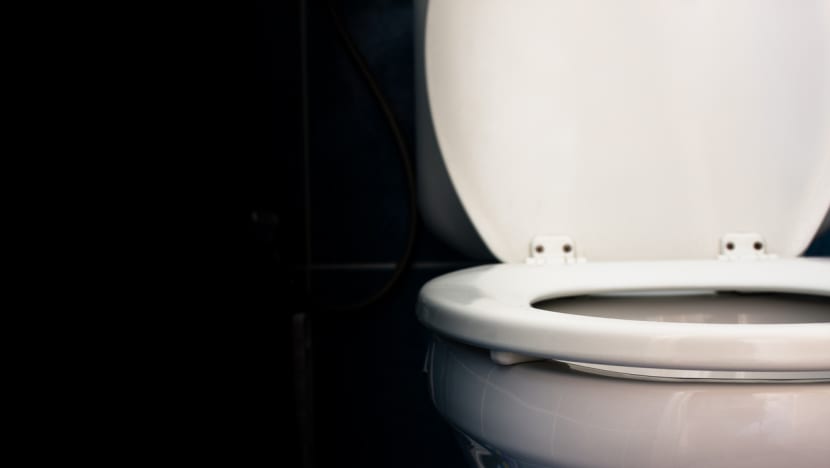'I am also the victim of the mosquito': Woman fined for mosquito breeding in toilet bowl after losing trial
When NEA officers visited her flat in the dengue cluster, Koh Ee Sian said she did not kill animals due to her religious beliefs and the officers had to boil water themselves to destroy the habitat.

File photo of a toilet bowl. (Photo: iStock)
SINGAPORE: A woman who claimed trial to a charge of creating conditions favourable to mosquito breeding in her toilet bowl was convicted and fined S$1,400 (US$1,060) by a district court.
When National Environment Agency (NEA) officers found the breeding habitat in her flat, Koh Ee Sian would not boil water to destroy it, citing her religious beliefs.
She is appealing against the conviction and the sentence.
The woman, who was unrepresented, was accused of allowing mosquito breeding in a toilet bowl in her flat in May 2022. She stayed in the room next door but did not use the toilet bowl in question as she was waiting for tenants to move in.
According to a judgment released on Friday (Dec 29), two NEA officers went to Koh's unit that day because of a dengue outbreak within the Housing Board estate.
When they inspected the unit, they found mosquito breeding in the master bedroom toilet bowl, specifically Aedes larvae.
NEA prosecutor Harvinder Kaur said the condition that facilitated the propagation or habitation of mosquitoes existed in the flat owned by Koh, "otherwise, how else could the larvae exist in the toilet bowl?"
Advertisement
"If the toilet bowl was flushed or cleaned every day, no larvae would be found," said Ms Kaur.
THE FLAT
Koh, who was self-represented, claimed that the officers had dragged a big bag of detergent into the master bedroom toilet and poured it into the toilet bowl.
Ms Kaur said the officers had in fact asked Koh for Clorox and detergent to destroy the breeding habitat, but Koh said she had none and she did not kill animals because of her religious beliefs.
When one of the officers asked for an empty bottle so she could collect a breeding sample, Koh asked what would happen next.
She was told that she "might get fined" if a vector was found in the sample, and Koh said it would be "unfair" for her to pay the fine as she "seldom" went back to the flat.
Advertisement
One of the officers then asked Koh if she had boiling water, and Koh passed the officers a kettle. The officer had to boil the water herself, as Koh repeated that she did not kill animals.
The officer then poured boiling water down the toilet bowl and asked Koh to flush it 15 to 30 minutes later before leaving with her colleague.
The sample showed mosquito breeding of the Aedes species - Dengue, chikungunya and zika - at larval stage 4. It takes an egg four days to reach such a stage, the court heard.
Initially, Koh was offered a S$200 fine, but she said she did not want to pay it as she did not create conditions favourable to mosquito breeding as described in the offence.
"I didn't create it, because the master bedroom toilet was left like untouched and I also didn't know, I am also the victim of the mosquito, you know, breeding there ... so, that's why I came here," she said.
Advertisement
HER ARGUMENTS
Koh was the only witness for her own defence. She said she had done what she could to prevent mosquito breeding according to NEA's Dengue Home Guidelines, and that if NEA failed to inform the public that mosquitoes could breed in toilet bowls, the public would not know.
She argued that NEA's checklist on actions to take to prevent mosquito breeding in homes did not explicitly include the reference to toilet bowls, but NEA prosecutor Ms Kaur called this "absurd".
Koh said she followed NEA's advisories but claimed that there was no mention of cleaning or maintaining toilet bowls. In response, NEA said the guidelines were general and non-exhaustive, and that everyone is advised to frequently check and remove stagnant water.
Koh said although NEA's guideline graphics showed toilet bowls, nothing was said about them.
She said the kitchen toilet was bigger than the one in the master bedroom and there was no mosquito breeding there, and that it was unfair for NEA to charge her over it. She said she was "also a victim" as her area was a dengue cluster.
She said she did not know where the mosquitoes came from and told the officers during the inspection that mosquitoes "just like fly in to breed there".
Koh said that she was unsure if she would have taken any action if she had found mosquito breeding. However, she would have done something about it if someone had been stung.
For example, if someone had contracted dengue and was very ill, Koh said she could "take a lot of actions, like, lock the mosquito up".
In response to NEA's point that she would have seen the part about keeping the toilet bowl lid closed if she had read all of NEA's guidelines, Koh said she had read the ones for home users and that there was "no need to read" all of the guidelines.
The judge said the crux of Koh's defence was that no one used the master bedroom toilet and she "didn't give any permission for the mosquitoes to come into, breed in (her) toilet bowl".
As the mosquito "just flew in", she could not be held responsible for the breeding.
"The accused effectively attributed the offence to the mosquitoes, and not herself," said District Judge Brenda Chua. "I rejected this purported justification."
Judge Chua said if nobody used the toilet bowl or cleaned or flushed it, the water would be stagnant, and mosquitoes breed in stagnant water.
The judge convicted Koh, saying that if everyone used Koh's reasoning that what was left untouched was not their responsibility, mosquitoes "would be left to breed rampantly in households".
The prosecution sought a fine of S$1,500 based on the time and effort taken for the trial and how unrepentant Koh was.
Koh said NEA "should not even charge her with this offence" and added that the decision was one-sided as the court had chosen to believe the testimony of the NEA officers.
Noting that the danger caused by the Aedes mosquito could be serious and fatal, the judge fined Koh S$1,400. Koh has paid the fine.
She could have been fined up to S$5,000 and jailed up to three months or both as a first-time offender. Repeat offenders face double the fine and jail term.
This browser is no longer supported
We know it's a hassle to switch browsers but we want your experience with CNA to be fast, secure and the best it can possibly be.
To continue, upgrade to a supported browser or, for the finest experience, download the mobile app.
Upgraded but still having issues? Contact us











No comments:
Post a Comment